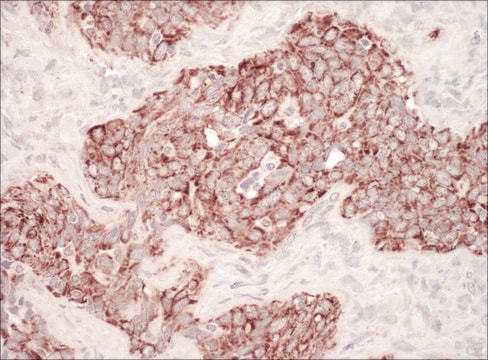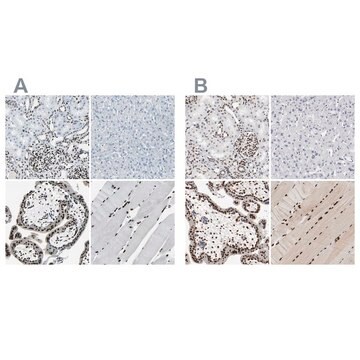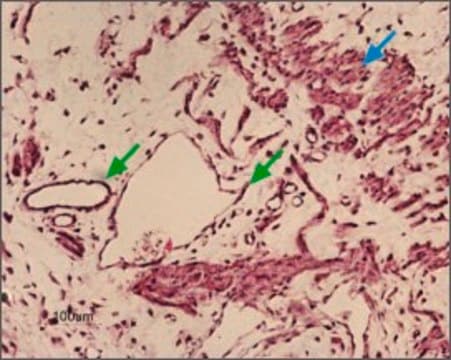SAB4200183
Anti-SORBS2 antibody,Mouse monoclonal
clone S5C, purified from hybridoma cell culture
Synonym(s):
Anti-ARGBP2, Anti-Arg binding protein 2, Anti-Arg/Abl-interacting protein 2, Anti-sorbin and SH3 domain containing 2
About This Item
Recommended Products
biological source
mouse
conjugate
unconjugated
antibody form
purified from hybridoma cell culture
antibody product type
primary antibodies
clone
S5C, monoclonal
form
buffered aqueous solution
mol wt
antigen 85 kDa
species reactivity
hamster, canine, mouse, rat, human
concentration
~1.0 mg/mL
technique(s)
immunocytochemistry: suitable
immunoprecipitation (IP): suitable
western blot: 2-4 μg/mL using HeLa or NRK or 3T3 total cell extracts.
isotype
IgG1
UniProt accession no.
shipped in
dry ice
storage temp.
−20°C
target post-translational modification
unmodified
Gene Information
human ... SORBS2(8470)
General description
Immunogen
Application
Biochem/physiol Actions
Physical form
Disclaimer
Not finding the right product?
Try our Product Selector Tool.
Storage Class Code
10 - Combustible liquids
Flash Point(F)
Not applicable
Flash Point(C)
Not applicable
Choose from one of the most recent versions:
Certificates of Analysis (COA)
Don't see the Right Version?
If you require a particular version, you can look up a specific certificate by the Lot or Batch number.
Already Own This Product?
Find documentation for the products that you have recently purchased in the Document Library.
Our team of scientists has experience in all areas of research including Life Science, Material Science, Chemical Synthesis, Chromatography, Analytical and many others.
Contact Technical Service







